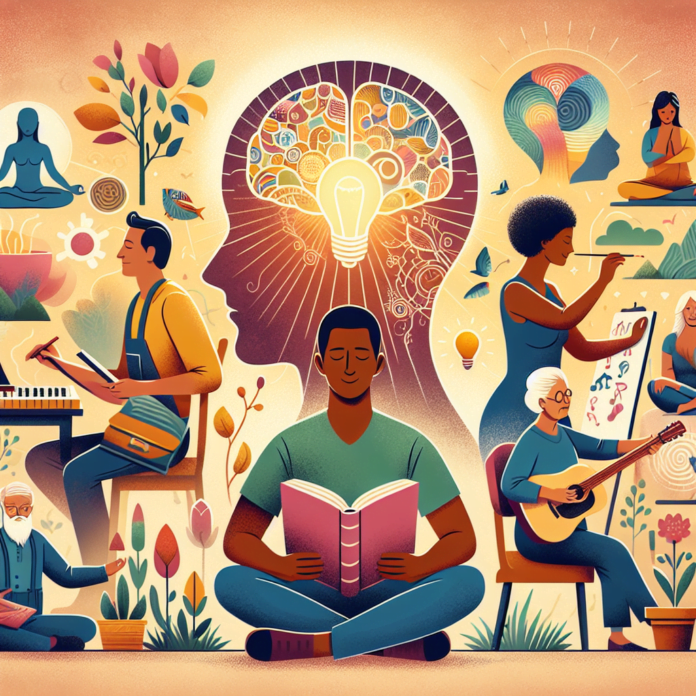Mental wellbeing is essential for everyone, regardless of their age, occupation, or lifestyle. Maintaining a healthy mental state allows you to perform optimally, relate better with people, and lead a fulfilling life. One of the best ways to boost mental health is through engaging in leisure activities. Essentially, leisure activities aid in brain development, stress reduction, mood enhancement, and improving cognitive function.
The Relationship between Leisure Activities and Mental Health
Leisure activities are non-compulsory activities that individuals engage in during their free time. They encompass hobbies, sports, games, trips, and other pursuits that people find enjoyable and satisfying. Engaging in such activities is associated with several mental health benefits. To fully understand the context, let’s explore these benefits.
Stress Reduction
The adverse effects of stress on mental health cannot be overemphasized. Chronic stress can lead to depression, anxiety, and other mental health disorders. Engaging in leisure activities offers an effective antidote to stress. It promotes the production of endorphins, which are ‘feel-good’ hormones that reduce stress and pain levels. Activities such as watching movies, cooking, reading, or hiking can help distract your mind from stressful situations and shift your focus towards more positive aspects.
Facilitates Brain Development
Leisure activities provide mental stimulation that helps in brain development. Mental stimulus helps improve neural connections, resulting in enhanced memory and cognitive abilities. Engaging in activities such as puzzles, crosswords, and painting can help improve concentration, memory, and analytical thinking. Moreover, activities that involve physical exertion, like dancing or team sports, simultaneously stimulate mental and physical faculties, contributing to overall mental well-being.
Mood Enhancement
Engaging in activities you love can significantly improve your mood. This is because such activities increase the release of dopamine, a neurotransmitter that produces feelings of happiness and satisfaction. This mood shift can decrease feelings of depression and anxiety while enhancing emotional wellbeing.
Boosts Self-confidence and Self-esteem
Leisure activities can also help foster a sense of achievement and improve self-esteem. Completing a challenging workout, mastering a new skill, or winning a game can give you a sense of pride and accomplishment. Such experiences can greatly boost your self-confidence and self-belief, which are essential elements of mental health.
Improves Social Skills
Many leisure activities involve social interaction, which can be highly beneficial for mental health. Socializing can alleviate feelings of loneliness, and improve communication skills and emotional intelligence. Participating in team sports, joining clubs or groups, or volunteering can provide great opportunities for social interaction.
Boosts Mental Resilience
Regularly engaging in leisure activities can enhance mental resilience, enabling you to cope better with life’s challenges. Resilience—the ability to quickly recover from difficulties—boosts mental toughness and reduces the risk of developing mental health disorders. By providing mental stimulation, relaxation, and satisfaction, leisure activities help to build and enhance this resilience.
Conclusion
In conclusion, leisure activities carry immense mental health benefits. They reduce stress, stimulate brain development, enhance mood, boost self-esteem and self-confidence, improve social skills, and build mental resilience. As such, it’s essential to make time for leisure activities in your schedule. Whether it’s reading a book, painting, hiking, playing a sport, or any other activity you enjoy, the key is consistency. Make it a routine, and enjoy the mental health benefits that come with it.
Frequently Asked Questions
1. Can leisure activities help manage mental disorders like depression or anxiety?
Yes. Regular participation in leisure activities can help reduce symptoms of depression and anxiety by promoting relaxation and positive mood shifts.
2. What types of leisure activities are most beneficial to mental health?
Any leisure activity that you enjoy and find satisfying can be beneficial. It can range from cognitive-stimulating activities like puzzles or crosswords, physical activities like dancing or hiking, or creative ones like writing or painting.
3. How much time should I dedicate to leisure activities?
There’s no predefined time limit; however, try to incorporate leisure activities into your daily routine. Even spending 15-30 minutes on a hobby or a game regularly can greatly impact your mental health.
4. Can leisure activities replace professional mental health treatments?
While leisure activities significantly enhance mental health, they should not replace professional help, especially for diagnosed mental disorders. If you’re dealing with mental health issues, it’s important to seek professional help and use leisure activities as a complement to your treatment.

